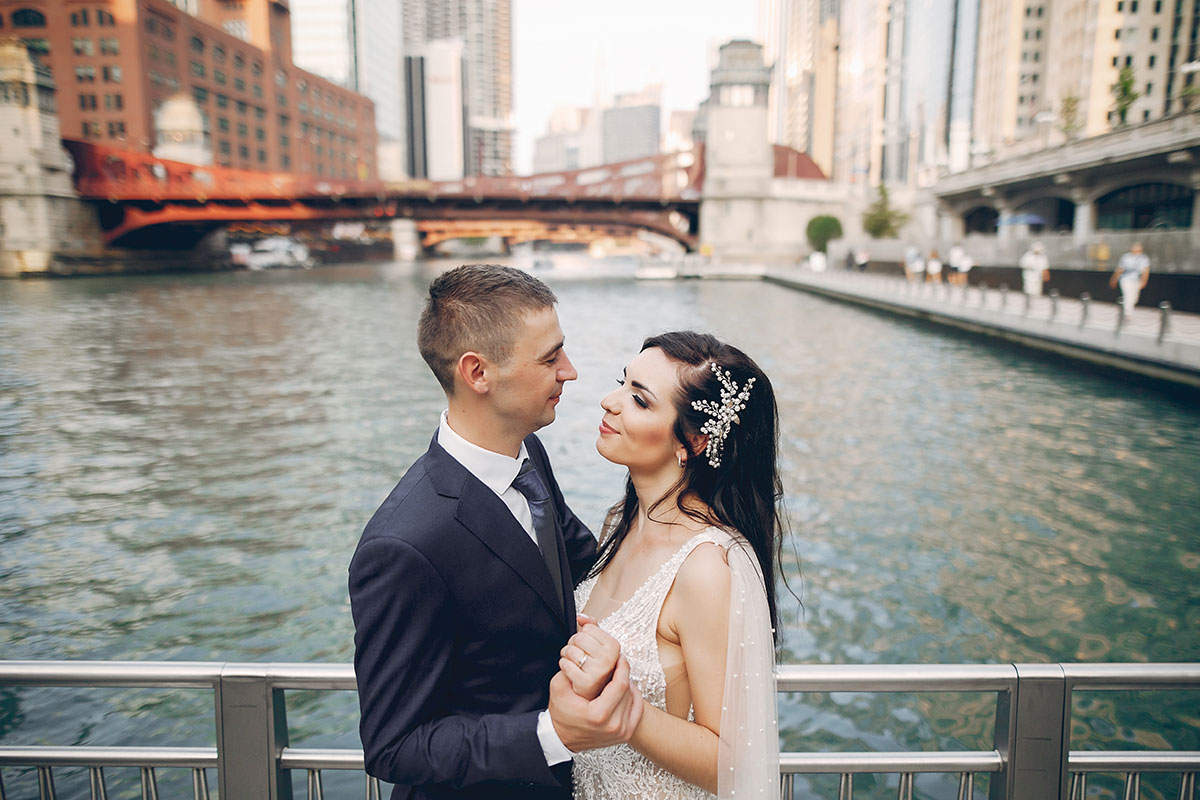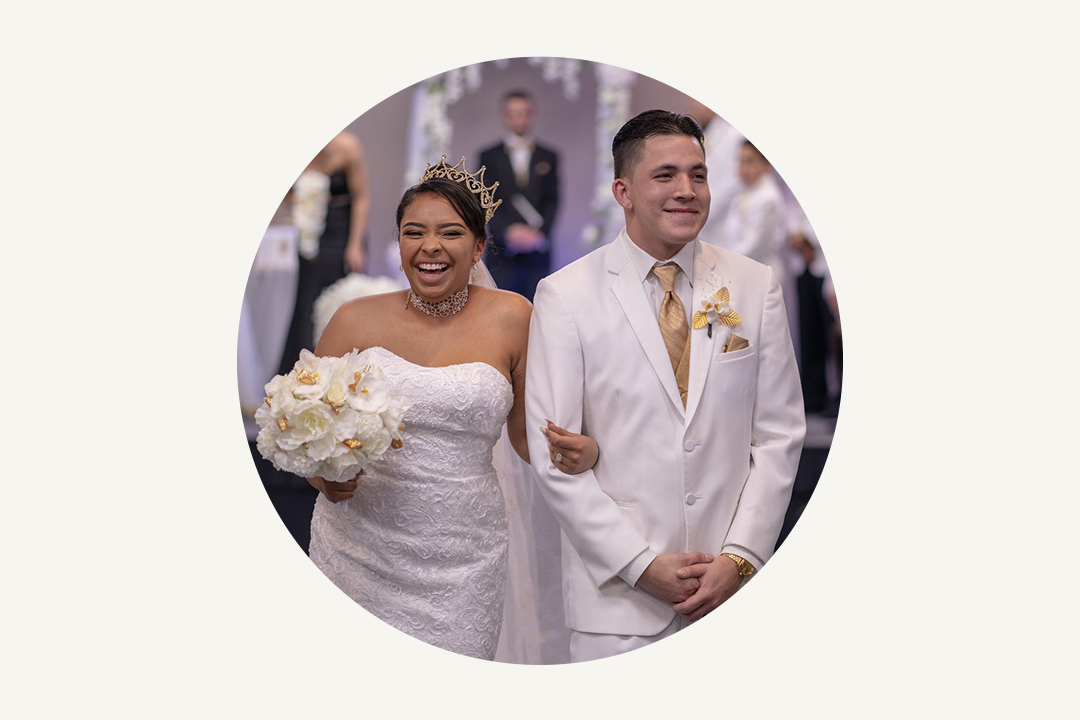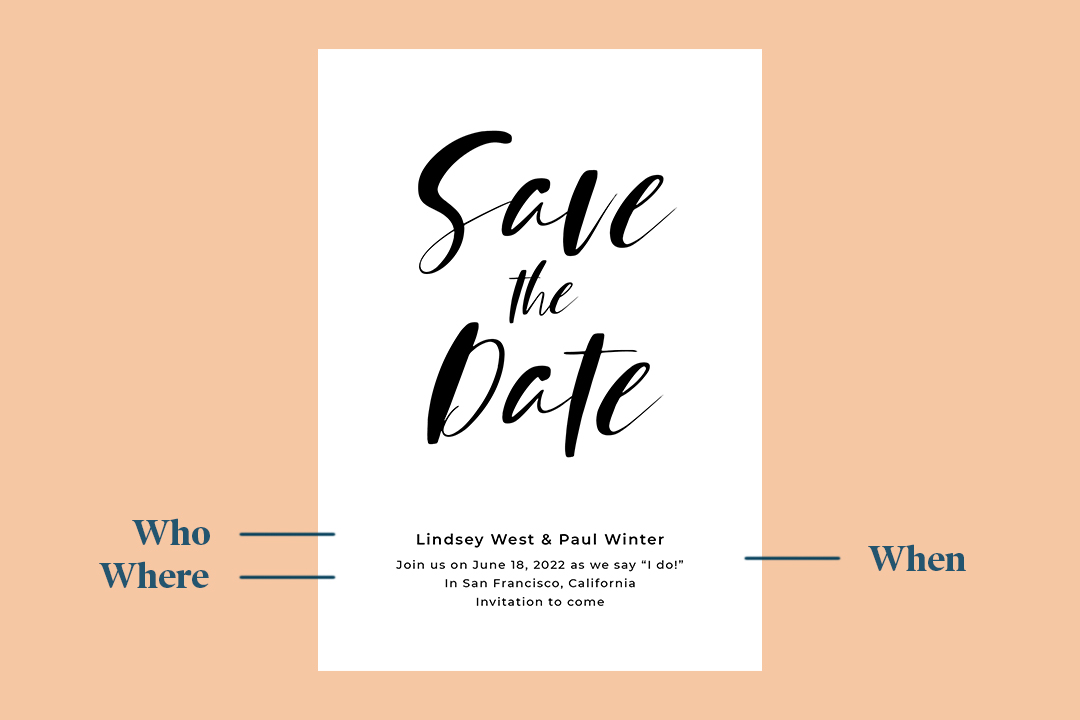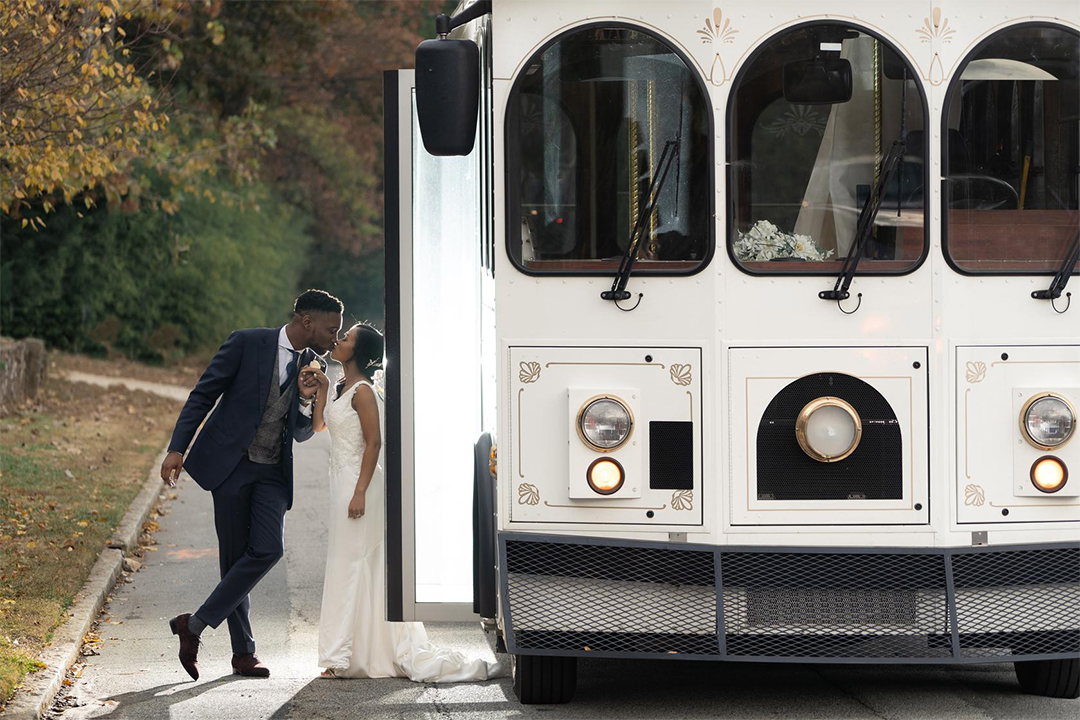- Expert advice/
- Wedding planning 101/
- Legal/
- How to Get a Marriage License in Maryland
- Legal
How to Get a Marriage License in Maryland
Zola is your guide to everything you need to know about Maryland marriage licenses.
Last updated February 5, 2024

The First Look ✨
- Applying for a marriage license in Maryland is a simple process that starts with a trip to the Court Clerk’s office located in the county where the ceremony will be taking place.
- Out-of-state couples holding their ceremony in Maryland will need to submit a separate application form accessible via the court clerk’s office in the county they’ll be getting married in.
- Marriage licenses in this state are valid for six months after the date of issuance. If not used within this time frame, couples will need to reapply.
- The state of Maryland has a required 48-hour waiting period between the date a marriage license is issued and the date of the wedding ceremony.
You’re getting married in Maryland which—aside from marrying the love of your life—is already one of the best decisions you could have made. From industrial chic to coastal and quaint, this state offers up a bit of everything to add to the romance and elegance of your special day.
Before getting lost in wedding design dreamland, you’ll want to take care of a few important practicalities—namely, your Maryland marriage license. You’ll need to follow the steps outlined below to ensure the validity of your nuptials.
Application Procedure
Applying for a marriage license in Maryland isn’t much of a hassle overall. By gathering the necessary documents ahead of time and staying on top of important dates, you’ll be able to spend more time picking out the perfect wedding invitations (you'll find them at Zola, of course) and personalizing them with a heartfelt message from you and your spouse-to-be.
Unfamiliar with the application procedure itself? Here’s a good place to start you off:
-
Know What Type of Marriage License You’ll Need to Apply For: One size does not necessarily fit all when it comes to marriage licenses. If you’re a Maryland resident, you can apply in person at the Court Clerk’s office that services the county in which you reside. For non-residents, you’ll need to submit a separate application form from the county you’ll be getting married in.
-
Consider the Application Timeline: Don’t apply too soon or too late. Different states have different laws that could affect the length of the application process. Set up calendar reminders for the important deadlines you’ll need to meet each step of the way to be sure they don’t get lost amongst the other tasks and deadlines you’ll be juggling.
Here are some dates to keep track of when applying for a marriage license in Maryland:
-
Apply for your marriage license no more than six months prior to the date of your wedding.
-
Once your marriage license is issued, adhere to the 48-hour waiting period policy required by the state of Maryland.
-
Submit your signed marriage license back to the issuing Court Clerk’s office within five days of the wedding ceremony.
What’s Required for the Application
Another variable that changes from state to state: application requirements. Take a look below at what you can expect when applying for a Maryland marriage license.
-
The Proper Documentation: Aside from the application form itself, each of you will need to present the following:
-
Full name and date of birth
-
Valid ID to confirm name and age, such as a passport, driver’s license, or military ID
-
Social Security numbers
-
State or country of birth
-
If previously married, the applicant(s) will need to present documentation proving death or divorce of a prior spouse
-
Application Fee: Application fees are not fixed in Maryland. In some counties, they could be as low as $35, while others charge as much as $85. Call the Court Clerk’s office located in the county your ceremony will take place in to identify the exact cost for that area.
Note: Some Court Clerk’s offices may only accept payment in the form of cash or check. Inquire ahead of time to avoid having to make a last-minute trip to the ATM.
-
Information Regarding Officiants: Qualifying officiants, according to Maryland marriage laws, include officials of a religious order, a deputy clerk, or a judge. Maryland does not accept justices of the peace, so only a deputy clerk or a judge will be able to officiate civil ceremonies. There is an additional cost of $25 for civil ceremonies in this state.
-
Attendance of One or Both Parties: While some states require both individuals to be present at the Court Clerk’s office when applying for a marriage license, only one person is required to be in attendance in Maryland. Therefore, in the event that you or your significant other is unable to attend the appointment, one of you may present documentation on the other’s behalf.
Things to Know About Your Maryland Marriage License
Again, marriage licenses vary from state to state. So, even if you’ve been married before and may be familiar with the process of applying for a marriage license, it’s important to be up-to-date on the specific laws of each state.
Here are a few important details to note about Maryland marriage licenses:
-
Maryland law has a 48-hour waiting period. This means that you and your partner will have to wait two days from the time your license was issued before you can make it official. Specifically, after 6:00 a.m. on the second day.
-
Maryland marriage licenses expire after six months. So, if you don’t hold your ceremony within six months of the issued date of your license, you and your partner will need to reapply.
-
There is no blood test requirement for couples choosing to marry in Maryland.
-
Marriage license applications in Maryland will be considered invalid if one or both individuals supply false information on the application form. Additionally, applicants who cannot present documents verifying the official end of any and all previous marriages will not be considered.
Marriage Laws Unique to Maryland
Some marriage laws can be standard across the country, while others are state-specific. If you’re getting married in Maryland, these are a few state laws you may want to know about.
-
Pregnancy May Take the Place of Parental Consent for Minors Who Wish to Marry: In the state of Maryland, marriage is prohibited for anyone under 15 years of age. For 15-year-old minors choosing to marry, they must receive parental consent and certification from a doctor verifying that the female is pregnant or has given birth. For those in the 16 to 17 year age bracket, couples may produce one or the other in order to obtain permission to marry.
-
No Snooping in Your Husband’s Pockets: Once you’ve already made it official, there is one odd Maryland marriage law that applies to wives only. According to Our Community Now, a wife may not sift through her husband’s pockets while he’s sleeping. So, if he’s awake, is it fair game?
Frequently Asked Questions About Marriage in Maryland
Marriage is an exciting endeavor—and an excellent excuse to put all of your nauseatingly adorable photos in one place, like in Zola’s gorgeous wedding albums.
However, marriage, and the process of making things official, can cause a few stress-induced, pre-celebration meltdowns, too. Don’t be afraid to ask questions. In case you’re not sure what to ask, exactly, we’ve prepared a list of a few common inquiries that will help set you off on the right track.
When Should I Start Applying for my Marriage License In Maryland?
Because your nuptials could be rendered invalid without it, getting a marriage license should be moved to the top of your wedding to-do list. However, since licenses expire after six months in Maryland, you’ll want to be careful not to jump the gun.
The best approach? Book your appointment in advance in case the court clerk’s office is overloaded with applicants, but be sure to set it no more than six months prior to your wedding date. Gather all of the necessary documents, so that they’re ready to go whenever you need them.
Can I Get Married in Maryland If I’m Not a Resident of the State?
If you and your significant other are non-residents, there is no law that prohibits you from getting married in the state of Maryland. However, Maryland law does require out-of-state couples to apply in person for a marriage license via the Circuit Court Clerk’s office located in the county in which the ceremony is set to take place.
Alternatively, couples may download a Non-Resident Affidavit application form to be completed and submitted to a court clerk or other comparable entity that issues marriage licenses in the county the pair currently resides in.
What’s the Difference Between a Marriage License and a Marriage Certificate?
The difference between marriage licenses and marriage certificates can often be a point of confusion for spouses-to-be. They are both important documents that you’ll need to obtain, but the two terms cannot be used interchangeably.
Marriage licenses and marriage certificates are acquired at different stages of the wedding process. A marriage license, issued before the ceremony, gives permission for you and your partner to get married. A marriage certificate, however, is requested after your ceremony as a document to prove your now-official status as a married couple.
Why Is There a Waiting Period?
Maryland laws require couples to wait 48 hours from the date a marriage license is issued to the date of the wedding ceremony itself. Although there are some states that allow couples to marry immediately after receiving their license (Las Vegas elopement style), others require them to wait a day or two—or even as many as six days in Wisconsin—before making it official.
This waiting period is put in place to avoid spur-of-the-moment weddings and ensure that both parties have carefully considered their nuptials instead of making hasty decisions about a lifelong commitment.
Are Proxy Marriages Allowed in Maryland?
Proxy marriages occur when one of the individuals to be wed is absent from the ceremony and instead represented by a proxy, or representative, to accept the vows of marriage on their behalf. Proxy marriages in Maryland are prohibited, although the 2012 Tshiani v. Tshiani case suggests that foreign proxy marriages may be validated.
In general, the practice of proxy marriage is not very common. It is only legal in a handful of states including California, Texas, Montana, and Colorado.
What to Do After You Get Your Marriage License
Now that you’ve paid the fee, filled out the application, and adhered to the 48-hour waiting period, you have a license to wed! Great—but now what?
- Don’t Forget to Sign It: After the ceremony, make sure that both you and your spouse have signed your marriage license. You’ll also need a signature from your officiant. The state of Maryland does not require any additional signatures from witnesses.
Pro tip: There’s a lot of celebrating and socializing happening on the day of your wedding. Sign your marriage license as soon as you finish the ceremony, so that this task is not lost amidst the chaos of the day.
-
Submit Your Marriage License to the Proper Place: Once your marriage license is signed by all parties, you’ll need to send it or deliver it by hand to the same court clerk’s office that issued it to you. Don’t forget—you’ll need to do this within five days of the date of your ceremony.
-
Don’t Forget to Get Copies of Your Marriage License: From health and car insurance to bank accounts and Social Security, you’ll need copies of your marriage license for a number of reasons. Be sure to request these from the court clerk’s office. You can expect to pay a fee of around $5.50 per certified copy.
What’s the Difference Between a Domestic Partnership and a Marriage?
You’re quickly becoming a pro on marriage, but you might be a bit less familiar with domestic partnerships. This type of union became common among same-sex couples before the U.S. Supreme Court Obergefell v. Hodges decision in 2015, which required states to grant same-sex partners the right to get married. While still an attractive option for couples who would prefer some sort of alternative to marriage, it may be subject to fewer benefits.
For one, the application procedure for a domestic partnership comes with a different set of requirements than that of a marriage. (See details on this in the next section.) While both are legal commitments, the main differences are in the benefits available to each:
-
Domestic partners may experience more difficulty receiving coverage on their partner’s employer-sponsored healthcare.
-
The rights of domestic partners vary greatly from state to state. Some states do not recognize domestic partnerships at all.
-
Domestic partnerships avoid the marriage penalty tax.
-
Married couples have greater access to survival benefits and pensions in the event of their spouse’s death.
Married couples are likely to have better financial protection and easier access to marital assets in case of divorce.
Let’s take a look at some state-specific information regarding domestic partnerships in Maryland next.
Everything You Need to Know About Domestic Partnerships in Maryland
Domestic partnerships continue to be an option for couples seeking an alternative to marriage. In order to apply for a domestic partnership in Maryland, the two individuals must:
-
Not be related by blood or by marriage.
-
Be considered, according to their civil status, as single. (They may not be married or already in an existing domestic partnership with another individual.)
-
Be 18 years of age or older.
-
Present two forms of proof demonstrating their union, such as a cohabitation contract or a joint checking account.
Domestic partners in Maryland receive the following benefits:
-
They may make funeral decisions and arrangements on behalf of their partner in the event of death.
-
They have visitation rights if one or the other has been admitted to a hospital.
-
Domestic partners are exempt from taxation when making property transfers.
-
They have the right to share a room in retirement homes or assisted living facilities.
Again, it is important to note that not all states recognize domestic partnerships. One of the biggest drawbacks of entering into a domestic partnership is that the benefits listed above may not be available to all couples in every state.
Tips and Tricks for Getting Married in Maryland
Whether you’re in need of a few practical state-specific tips or you want to be sure you give your guests a unique experience that incorporates some local Maryland flare, read on.
Here are a few event planning details to consider for your Maryland celebration:
-
Keep an Eye on Cost: According to The Wedding Report, Maryland ranks among the most expensive states to get married in 2020, securing a spot in sixth place. The average cost of weddings in Maryland in 2020 was $27,498. Previous years had even ranked as high as $33.4K. For budget-conscious couples, this is a number you’ll want to bear in mind.
-
Make Room for Mother Nature: Maryland boasts fairly mild temperatures year-round. July tends to be the hottest month, and August and September are often the most rain-drenched months due to the threat of hurricanes along the east coast. When deciding on the time of year for your celebration, check for the possibility of indoor accommodations at your wedding venue, and be sure to adjust attire accordingly.
-
Include a Taste of Maryland: Cracking crabs on your wedding day might be a bit more work—and mess—than you’d like to take on. Consider incorporating flavors from the Chesapeake area in other ways. Maryland crabcakes, rockfish and mango ceviche, or a crabby bloody mary could all be excellent additions to your reception menu. Need help finding a wonderful vendor? Browse through Zola’s pre-screened wedding vendor list to find the perfect caterer (and pretty much any and every wedding vendor).
-
Do Your Research on Permits: Maryland has a total of 18 national parks, including stunning seashores, historic sites, and wooded forests. If you’ve had your eye on one of these locations to celebrate your nuptials, you’ll want to double check first to see if they require any special permits. Keep in mind this could affect the date of your big day, particularly if you’re looking to book sometime in the summer months.
-
Take Transportation Into Account: If you or your guests are coming in from outside of Maryland for the event, Baltimore/Washington International (BWI) Thurgood Marshall Airport and Martin State Airport are the two major airports in the state. Though there is some access to public transportation in cities like Baltimore and Columbia, renting a car might be a more practical option if you’re expecting to travel outside of the city for the event or for some post-wedding travel adventures.
Planning A Wedding in Maryland With Zola
Now that you’re well versed on the ins and outs of the marriage license application process in Maryland, you’ve got room on your to-do list for one more thing: saying “I do” to Zola. Whenever you need a break from all of the legal matters, join us over at the hub of all things wedding-related.
With Zola you can:
-
Build your wedding registry, and take advantage of free shipping and returns.
-
Design a personalized, easy-to-build wedding website to share your love story and update your guests on all of the latest event details.
-
Receive personalized venue recommendations that align with your vision for your perfect day.
We’d love to hold a trusted spot on your wedding planning committee. Get started with Zola today.
Up next for you

How to Get Married in Washington DC: A Complete Guide
How-To
Dreaming of saying your “I Do’s” in the nation’s capital city? From venue options and wedding costs to the best places for photos, here’s everything you need to know about getting married in Washington, DC.

What Season Should You Get Married In?
Advice
Stuck between your love for spring or the magic of winter? There are a whole host of benefits to having a wedding in each season. Here are our tips to help you make the right choice.

15 Elegant White and Gold Wedding Ideas
How-To
Plan a chic and elegant ceremony and reception with these white and gold wedding ideas.
Featured

A Guide to Save The Dates
Inspiration
Save the dates add an extra touch of style and coordination to your wedding. Find out why and when you should send your save the dates with this complete guide.

Repurpose with a Purpose: How (and Where!) to Donate Your Wedding Dress
How-To
Instead of keeping it in storage, donate your wedding dress to support a cause and bride in need! Find out the best charities and fun ways to reuse your gown.

Courthouse Wedding Checklist
How-To
If a big reception with all the bells and whistles isn’t your speed, consider this courthouse wedding checklist for a simple yet sweet ceremony.

Wedding Transportation Ideas and Etiquette for Your Big Day
How To
How are you and your guests going to travel from point A to point B on your big day? This guide has the 411 on wedding transportation.
- Expert advice/
- Wedding planning 101/
- Legal/
- How to Get a Marriage License in Maryland
Find even more wedding ideas, inspo, tips, and tricks
We’ve got wedding planning advice on everything from save the dates to wedding cakes.
